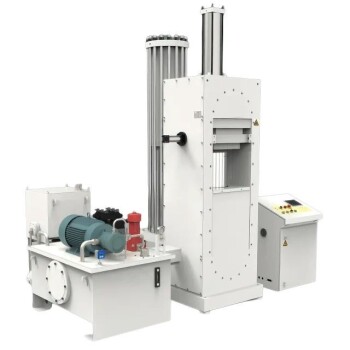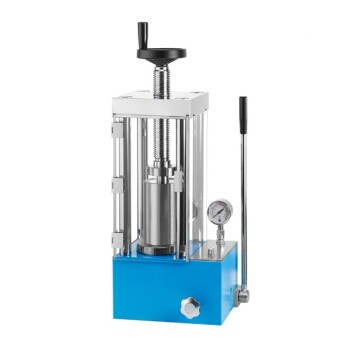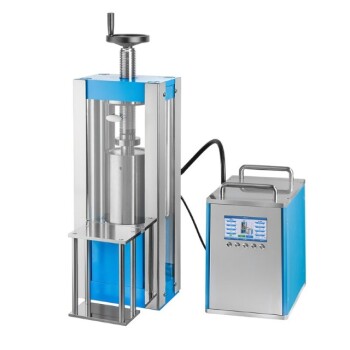Introduction
Table of Contents
- Introduction
- Understanding Cold Isostatic Pressing Services
- Application of extremely high pressures for sterilization or cold compacting of powders
- Consideration of supplier specifications such as service capabilities, materials processed, regions served, pressure range, and capacity
- Variation of required operating pressure based on material and part geometry
- Importance of chamber size in determining maximum dimensions of the product
- Capabilities of Cold Isostatic Pressing Services
- Design or fabrication of molds, mandrels, bags, tooling, and fixtures
- Specialization in decanning or chemical milling operations
- Densification or porosity removal through cold isostatic pressing
- Production of graded compositions and transition joints
- Provision of net or near-net shape fabrication and its benefits
- Additional Services Offered by Cold Isostatic Pressing Services
- Material Capabilities of Cold Isostatic Pressing Services
- Conclusion
Cold Isostatic Pressing (CIP) services play a crucial role in various industries, providing solutions for sterilization and compacting powders. These services offer a wide range of capabilities, ensuring the highest quality and efficiency. When considering CIP suppliers, it is essential to evaluate their specifications, such as service capabilities, materials processed, and pressure range. The required operating pressure may vary depending on the material and part geometry, while the chamber size determines the maximum dimensions of the product. In this article, we will explore the comprehensive overview of CIP services and their advantages for businesses in need of precision and reliability.
Understanding Cold Isostatic Pressing Services
Application of extremely high pressures for sterilization or cold compacting of powders
Cold isostatic pressing (CIP) services apply extremely high pressures using CIP or similar technologies to sterilize products or cold compact powders. This process is commonly used for materials such as aluminum and magnesium alloys, carbides and cutting tools, carbon and graphite, ceramics, and composites. Some CIP services specialize in coatings and thermal spray deposits, copper alloys, or diamond and diamond-like materials. Others work with electronic or electrical materials, explosives or pyrotechnics, or specialty and proprietary materials.

Consideration of supplier specifications such as service capabilities, materials processed, regions served, pressure range, and capacity
When selecting cold isostatic pressing services, it is important to consider supplier specifications. This includes their service capabilities, the materials they are able to process, and the regions they serve. Additionally, the pressure range and capacity of the service provider are important parameters to consider. The maximum operating pressure required for achieving the desired density during part production varies depending on the material and part geometry.
Variation of required operating pressure based on material and part geometry
The required operating pressure for cold isostatic pressing services varies based on the material and part geometry. Cold isostatic pressing applies pressure to the powder at room temperature or slightly higher to obtain a "raw" part with sufficient strength for handling and processing, and sintering to final strength. For metals, cold isostatic pressing achieves a theoretical density of about 100%, while for ceramic powders, it achieves a density of about 95%. The technology is used to form powdered materials at room temperature using rubber or plastic as the encasing mold material and liquid as the pressure medium.
Importance of chamber size in determining maximum dimensions of the product
The chamber size of a cold isostatic pressing service is an important factor in determining the maximum dimensions of the product. The chamber's internal diameter determines the maximum diameter of the product, while the internal length determines the width. Cold isostatic pressing equipment is available in a range of sizes, from laboratory units with a small inner diameter to larger units that are more than 2m wide. Operational pressure levels up to 900 MPa are possible. Customized automated CIP systems are also available, with features such as fully automated loading and unloading systems, high pressurization rates, and customized depressurization profiles.
In summary, when considering cold isostatic pressing services, it is important to assess the supplier's capabilities, materials processed, regions served, pressure range, and capacity. The required operating pressure varies based on the material and part geometry, and the chamber size determines the maximum dimensions of the product. Cold isostatic pressing is a versatile technology used for sterilization and cold compacting of powders, offering a wide range of applications in various industries.
Capabilities of Cold Isostatic Pressing Services
Design or fabrication of molds, mandrels, bags, tooling, and fixtures
Cold isostatic pressing (CIP) services offer the capability to design and fabricate molds, mandrels, bags, tooling, and fixtures. These components are essential for the CIP process, as they help shape and compact powders into the desired components. The ability to customize these tools ensures precise and accurate production.

Specialization in decanning or chemical milling operations
Some cold isostatic pressing services specialize in decanning or chemical milling operations. Decanning involves the removal of the can or mold after the CIP process is complete. Chemical milling, on the other hand, is a process that selectively removes material to achieve the desired shape or surface finish. These specialized operations enhance the flexibility and capabilities of CIP services.
Densification or porosity removal through cold isostatic pressing
One of the key capabilities of cold isostatic pressing services is the densification or removal of porosity within a powder body, sinter part, joint, or casting. CIP applies high pressures evenly across the material, compressing it and closing any pores or voids. This results in a denser and more solid component with improved mechanical properties.
Production of graded compositions and transition joints
Cold isostatic pressing services can produce graded compositions and transition joints using CIP. By varying the alloy composition as a can or mold is filled with powders, CIP allows for the creation of components with varying compositions along their length or across their surface. This capability is particularly useful in applications where different material properties or characteristics are required.
Provision of net or near-net shape fabrication and its benefits
Cold isostatic pressing services offer net or near-net shape fabrication, which involves shaping the component as closely as possible to its final form during the CIP process. This reduces the amount of material waste and machining required, resulting in cost savings and improved efficiency. Net or near-net shape fabrication is especially advantageous for complex or intricate components that are difficult to produce through traditional manufacturing methods.
Cold isostatic pressing (CIP) is a versatile technology that offers various capabilities for the production of metal and ceramic components. Whether it's the design and fabrication of molds and fixtures, specialized operations like decanning or chemical milling, densification or porosity removal, production of graded compositions and transition joints, or net or near-net shape fabrication, CIP services provide valuable solutions for a wide range of industries and applications.
Additional Services Offered by Cold Isostatic Pressing Services
Cold isostatic pressing services offer more than just sterilization and cold compacting of powders. They provide a range of additional services to meet various needs. Let's take a look at some of these services:
Offering of Powder Consolidation, Powder Preparation or Blending
Cold isostatic presses are used to produce shapes that are more complex or to increase the final density of powder compacts. These presses can be utilized for blending or preparing powders for subsequent processing. This service ensures that the powders are properly consolidated and prepared for further manufacturing processes.

Provision of Laboratory or Developmental Services
Some cold isostatic pressing services offer laboratory or developmental services. These services may include process parameter studies or the production of powder samples. This allows businesses to test and optimize their processes before moving into full-scale production. It also enables them to develop new products or refine existing ones.
Availability of Production-Scale Facilities
Cold isostatic pressing services often have production-scale facilities. These facilities are equipped with larger chambers and higher capacity to handle larger volumes of powders and products. This enables businesses to efficiently produce a larger number of parts or components through cold isostatic pressing.
Piggybacking Service to Process Small Batches within Current Production Runs
In addition to the primary services, some cold isostatic pressing services offer piggybacking. This service utilizes the excess space within current production runs to process small batches. This can be a cost-effective solution for businesses that have small production requirements or need occasional processing of smaller batches.
These additional services provided by cold isostatic pressing services enhance their capabilities and provide businesses with a range of options to meet their specific needs. Whether it's powder consolidation, laboratory services, production-scale facilities, or piggybacking, businesses can leverage these services to optimize their manufacturing processes and achieve desired results.
Remember to consider the specific requirements of your project and choose a cold isostatic pressing service provider that offers the services that align with your needs.
Material Capabilities of Cold Isostatic Pressing Services
Cold isostatic pressing (CIP) services offer a wide range of material capabilities for various applications. Whether you need to consolidate ceramic powders, compress advanced ceramics, or coat valve components, cold isostatic pressing can meet your needs.
Processing of a wide range of materials
Cold isostatic pressing services have the capability to process a variety of materials, including:
- Aluminum and magnesium alloys
- Carbides and cutting tools
- Carbon and graphite
- Ceramics
- Composites
These materials are commonly used in industries such as telecommunications, electronics, aerospace, and automotive applications.

Specialization in specific materials
Some cold isostatic pressing services specialize in certain materials, offering expertise in coatings and thermal spray deposits, copper alloys, or diamond and diamond-like materials. This specialization ensures that you receive high-quality results for your specific material requirements.
Working with specialty and proprietary materials
In addition to the commonly processed materials, cold isostatic pressing services are also capable of working with specialty and proprietary materials. This means that even if you have unique material needs, you can still rely on these services to provide the necessary processing.
Overall, cold isostatic pressing services offer a wide range of material capabilities. Whether you need to process aluminum and magnesium alloys, carbides and cutting tools, carbon and graphite, ceramics, composites, or even specialty and proprietary materials, these services can meet your requirements.
Conclusion
In conclusion, cold isostatic pressing services offer a wide range of capabilities and benefits for various industries. The application of high pressures allows for sterilization and cold compacting of powders. When considering a supplier, it is important to review their service capabilities, materials processed, regions served, pressure range, and capacity. The required operating pressure may vary based on the material and part geometry, while the chamber size determines the maximum dimensions of the product. Cold isostatic pressing services also provide additional offerings such as powder consolidation, laboratory services, and production-scale facilities. With their expertise in handling different materials, these services can meet the diverse needs of businesses.
Related Products
- Cold Isostatic Pressing Machine CIP for Small Workpiece Production 400Mpa
- Electric Lab Cold Isostatic Press CIP Machine for Cold Isostatic Pressing
- Manual Cold Isostatic Pressing Machine CIP Pellet Press
- Warm Isostatic Press WIP Workstation 300Mpa for High Pressure Applications
- Automatic Lab Cold Isostatic Press CIP Machine Cold Isostatic Pressing
Related Articles
- Isostatic Pressing Technology: Principles, Classification, and Applications
- Understanding Isostatic Pressing: Process, Benefits, Limitations, and Applications
- Comprehensive Guide to Isostatic Pressing: Types, Processes, and Features(3)
- Isostatic Pressing Technology: Revolutionizing Ceramic Material Densification
- How Isostatic Presses Help Eliminate Defects in Materials



















